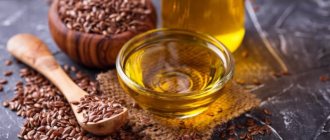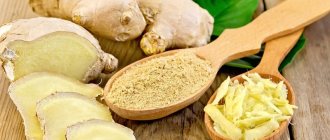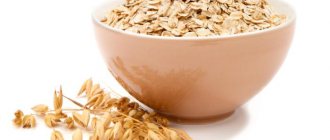What are the benefits of coconut?
The pulp of this palm fruit contains vitamins B, C, E, minerals and trace elements P, Ca, K, Fe, as well as vegetable proteins, fats, carbohydrates, and fiber.
All these substances are very useful for the human body, and especially for a woman who has recently given birth and a nursing mother. Regular consumption of coconut reduces cholesterol levels, strengthens the immune system, promotes the formation of proper microflora in the intestines, and reduces the risk of osteoporosis. Coconut milk is also very healthy and a good thirst quencher.
The value of the product is, first of all, determined by the rich set of mineral composition and vitamin components. Microelements are presented so widely that listing them would take too much time. It's easier to say what they don't have. They are very necessary for the mother, since a significant part of them is spent on the production of breast milk.
If coconut appears regularly in the diet of a nursing woman, the following positive aspects can be achieved:
- Consuming coconut can improve your eyesight.
- By using this product in your diet, you can reduce the level of harmful low molecular weight cholesterol.
- The thyroid gland puts its work in order.
- The characteristics of the formed elements of blood are qualitatively improved, making up its dense part.
- Strengthens hair structure.
- The water-salt balance is at the proper level in the body.
- Consumption of coconut leads to stabilization of hormonal levels.
- This product helps eliminate toxins and waste.
- There is a significant increase in the tone of the whole body.
- The product leads to the strengthening of the body's protective immune forces and provides the opportunity to improve mood.
If the body is significantly weakened, then coconut will become a faithful assistant. During significant physical activity, it promotes faster recovery of strength and performance. One cannot but agree that childbirth takes a fairly large amount of physical strength and energy.
Calorie content and composition
Before adding coconuts to your diet, you need to become more familiar with the components that make up them, as well as their calorie content. Mothers who are breastfeeding can eat coconut oil, pulp, and nut milk. The pulp of the fruit is most often used as a dessert, since one hundred grams of the product contains 350 kilocalories. It contains water, fiber, fats, carbohydrates and proteins.
The fruit also contains many vitamins belonging to group B. Among them are:
- tocopherol;
- thiamine;
- niacin;
- pyridoxine.
Nuts contain ascorbic acid, which is considered an effective anti-cold remedy. In addition, milk contains tocopherol and biotin, which the body needs for protein or lipid metabolism.
Calorie content and composition
Before adding coconuts to your diet, you need to become more familiar with the components that make up them, as well as their calorie content. Mothers who are breastfeeding can eat coconut oil, pulp, and nut milk. The pulp of the fruit is most often used as a dessert, since one hundred grams of the product contains 350 kilocalories. It contains water, fiber, fats, carbohydrates and proteins.
The fruit also contains many vitamins belonging to group B. Among them are:
- tocopherol;
- thiamine;
- niacin;
- pyridoxine.
Nuts contain ascorbic acid, which is considered an effective anti-cold remedy. In addition, milk contains tocopherol and biotin, which the body needs for protein or lipid metabolism.
Beneficial properties of nuts
Coconut during breastfeeding will benefit both mother and baby if you follow some precautions, which we will discuss below. Now let’s look at all the benefits of coconut for pregnant women, nursing mothers and babies.
Medical experts recommend that the expectant mother eat nuts in limited quantities.
The fruit contains a huge amount of substances beneficial to humans. It contains an abundance of B vitamins, vitamin C, E, which are vital elements for mother and child. It also contains calcium and potassium, sodium and iron, which are necessary during pregnancy. These microelements contribute to the proper formation and development of the fetus, keep the pregnant woman’s body in good shape, help quickly recover after childbirth and contribute to the full development of the baby who is breastfed.
Coconut is able to activate the protective properties of the human body due to the presence of fatty acids. These acids, in turn, have a pronounced antiviral and antibacterial effect. Strengthening the immune system is a very important point during pregnancy and breastfeeding.
Coconut pulp is a source of plant fibers that help relieve constipation during pregnancy. Fiber activates the intestines, eliminates stagnation, and helps better absorb nutrients from other foods.
Coconut pulp has a beneficial effect on the heart and blood vessels. Regular consumption of this nut removes harmful cholesterol from the body and makes blood vessels elastic.
Coconuts are an ideal snack for pregnant women and nursing mothers. They contain natural sugars. Therefore, nuts quickly saturate the body and give a person energy and strength.
The presence of sugars in coconut milk gives the drink a natural laxative effect on the intestines. Therefore, coconut milk during breastfeeding is a natural laxative that is safe for a nursing mother, unlike synthetic laxatives.
Coconut has a beneficial effect on the health of a person with a history of diabetes. The nut does not provoke a sharp jump in blood sugar levels. After eating coconut, insulin is produced slowly by the body. Thus, insulin production in the body gradually stabilizes.
The fruits are rich in phosphorus and manganese. These substances strengthen the human skeletal system and stimulate the baby’s growth.
The presence of iron in nuts at all stages of pregnancy and during breastfeeding saturates the body of both mother and child with the hemoglobin they need. Iron prevents anemia in mother and baby and stimulates lactation.
Coconut accelerates metabolic processes in the body, activates metabolism and helps burn excess weight. This effect of the nut is especially important for a woman after childbirth, when she needs to lose excess weight without depleting her body.
The antibacterial properties of coconut help prevent diseases of the urinary tract, kidneys and bladder.
Coconut oil is also used by women as a cosmetic product. It saturates the skin and hair with all the necessary nutrients, which is especially important during pregnancy, when the condition of the hair and skin deteriorates.
Regular consumption of this fruit will qualitatively improve vision, restore strength and give energy, regulate hormonal levels, and improve the condition of skin and hair.
Coconut quickly heals wounds, maintains the body's water balance at a normal level, prevents dehydration, normalizes intestinal function, strengthens the walls of blood vessels, increases immunity, cleanses the body of waste and toxins, improves blood, prevents kidney disease and gastritis, normalizes the functioning of the thyroid gland, reduces bad cholesterol, protects against infections and bacteria, relieves fatigue and tension.
We recommend reading: Drying while breastfeeding
The value of the product is, first of all, determined by the rich set of mineral composition and vitamin components. Microelements are presented so widely that listing them would take too much time. It's easier to say what they don't have. They are very necessary for the mother, since a significant part of them is spent on the production of breast milk.
If coconut appears regularly in the diet of a nursing woman, the following positive aspects can be achieved:
- Consuming coconut can improve your eyesight.
- By using this product in your diet, you can reduce the level of harmful low molecular weight cholesterol.
- The thyroid gland puts its work in order.
- The characteristics of the formed elements of blood are qualitatively improved, making up its dense part.
- Strengthens hair structure.
- The water-salt balance is at the proper level in the body.
- Consumption of coconut leads to stabilization of hormonal levels.
- This product helps eliminate toxins and waste.
- There is a significant increase in the tone of the whole body.
- The product leads to the strengthening of the body's protective immune forces and provides the opportunity to improve mood.
If the body is significantly weakened, then coconut will become a faithful assistant. During significant physical activity, it promotes faster recovery of strength and performance. One cannot but agree that childbirth takes a fairly large amount of physical strength and energy.
Beneficial properties for nursing mothers
Coconut milk during breastfeeding has a beneficial effect on various systems of the female body, allowing it to recover faster after childbirth and provide the baby with nutritious fortified milk.
Due to the content of fatty acids, the activity of the central nervous system improves, as well as the functioning of the brain, which is very important during the recovery period after childbirth, since at this time many women are susceptible to depression and often complain of difficulties with concentration and memory.
Coconut milk also promotes the rapid restoration of intestinal flora, which is disrupted in many mothers after the birth of a child.
It has a beneficial effect on:
- immunity;
- hormonal background;
- appearance (condition of skin and hair);
- vascular condition;
- cardiac activity;
- milk production.
Boosting immunity
Coconut milk contains a special lauric acid, which perfectly helps the human body recover after various types of stress and illness. Carrying a baby, giving birth and subsequent breastfeeding require enormous costs from a woman, both physical and moral.
Often at this time, mothers are faced with fatigue, exhaustion, their immunity is seriously reduced and they become vulnerable to various types of colds.
Thanks to the lauric acid it contains, coconut milk has an antimicrobial effect and helps reduce the number of bacteria and viruses in the oral cavity, as well as prevent inflammatory and infectious processes in the bladder, kidneys, and urinary tract.
There are studies showing that lauric acid helps fight measles, some types of herpes and HIV.
By consuming coconut milk while breastfeeding, a woman will not only increase her body’s immune defense, but will also help her stay alert and cope with the physical and psychological stress that accompanies pregnancy and childbirth.
Effect on the cardiovascular system
At the stage of carrying a baby, the load on a woman’s heart increases significantly, as the overall blood flow increases. Coconut milk will protect the heart from overload and minimize the risk of deposition of cholesterol plaques on the walls of blood vessels. It is especially important to include it in your diet for women with heart problems.
The beneficial effect of coconut milk on the activity of the cardiovascular system is explained by the presence in its composition of cytokines - peptide molecules or amino acids that reduce the risk of blood clots forming on the walls of blood vessels. Also, these substances do not allow “bad” cancer cells to multiply and protect the body from cancer.
Improvement of hair and skin condition
Since coconut milk is rich in fatty amino acids, its periodic consumption has a beneficial effect on the condition of the skin and hair. This product is actively used for cosmetic purposes (as part of various masks and creams), but it is its internal consumption that gives the best results.
Coconut milk contains fatty acids that help restore moisture to the skin and restore its tone. Also, thanks to fatty oils and the vitamin E contained, women can avoid the appearance of stretch marks and stretch marks on the skin of the abdomen, thighs and chest when losing weight.
Normalization of hormonal levels
Coconut milk during breastfeeding helps normalize hormonal levels, which can be unstable and change dramatically at this time. This product helps establish a regular menstrual cycle and support women's reproductive health in the postpartum recovery period.
Coconut milk also promotes the restoration and normal functioning of the thyroid gland, which reduces the most important hormones. This product, unique in its content of fatty amino acids, helps normalize metabolic processes and allows women to lose weight without excluding important fats from the diet, which are necessary for the normal growth and development of the baby.
Milk also contains manganese, which helps control blood sugar levels and reduces insulin dependence. Under the influence of manganese, the body begins to intensively produce this hormone and the imbalance disappears.
Increased lactation
The main argument for consuming coconut milk during breastfeeding is the fact that it helps to increase the production of human milk, as well as improve its quality composition. Thanks to it, the body produces the hormones necessary to reduce its own milk.
The fatty acids that coconut is rich in are also found in breast milk. Coconut milk also contains a substance called monolaurin, a type of fat responsible for the formation of brain cells.
In addition, consuming coconut milk during breastfeeding helps:
- eliminate stagnation of fluid in the body and remove all unnecessary and harmful toxins and waste from the woman’s body;
- solve digestive problems - normalize stool during constipation, cope with heartburn;
- saturate the body with a number of vitamins (B, C, Ca, Fe), which have a beneficial effect on the composition of milk.
Differences between coconut milk and water
The nuts ripen on the coconut tree. When they are still young, they contain coconut water inside. During the ripening process, drops of oil enter it, and a composition called coconut milk is formed inside. But, if the nut pulp is mixed with coconut water, the same coconut milk is formed, only obtained artificially.
The differences are also in the amount of calories. It is more pronounced in coconut milk and amounts to 229.9 cal per 100 g of product. Coconut water contains only 18.9 calories. It is not difficult to see that there is a significant arithmetic difference. Of course, if a woman suffers from the presence of extra pounds, then it is more rational for her to drink coconut water.
The vitamin and mineral composition of coconut water is poorer compared to milk, but this drink tones and quenches thirst perfectly. This product can reduce the acidity of gastric juice. Orange peel will never appear in “interesting” places if its consumption is regular.
Despite the benefits of such a product, you should not abuse it. Extra pounds have never benefited anyone. This concerns not only the aesthetic side of the issue, but also the excessive load on all organs and systems without exception. In terms of nutritional content, this plant milk is similar to animal products, such as cow's milk.
The electrolyte composition of coconut water is close to the composition of the liquid part of blood. The water is enclosed in a dense nut crust, making it sterile. During the Vietnam War, military doctors even used it for blood transfusions.
The pulp and shavings contain valuable fatty acids that are extremely necessary for the female body. The bulk of the calorie content (292 cal) comes from fat.
Coconut oil: benefits and harms
Coconut oil is produced from the pulp, which, in turn, is used to make soap and margarine, coconut fat, and candles. Cake is a healthy food for pets. Coconut oil is extremely beneficial for the skin, which is instantly absorbed due to the content of triglycerides and fatty acids in its composition. Lauric and capric acid fight germs. Coconut oil has a delicate aroma and a slight nutty taste.
Coconut oil, entering the human body, immediately begins to be digested, giving energy and lightness, without loading the liver.
Coconut oil is produced from pre-dried coconut pulp, copra, which is crushed and put under a press. The most common method is hot pressing. Cold pressing is also used. The method allows you to preserve as much as possible all the beneficial properties of coconut oil. On store shelves you can find both refined and unrefined oil.
Coconut oil in cosmetology: benefits and harms
Coconut oil is produced for food purposes and for use in cosmetology. The oil is ideal for massage, and if you massage after a hammam, the cosmetic effect will be quite noticeable. The oil has a beneficial effect on the condition of the skin, protects it from the harmful effects of UV rays, and intensively moisturizes.
You will learn the secrets of using coconut oil in cosmetology from the video:
Coconut oil is a storehouse of useful substances for the health and beauty of hair. With regular use of the product as part of masks, hair is filled with vital energy and restored along its entire length.
This gift of southern nature can only affect your appearance in a positive way.
Coconut oil does not oxidize due to its fatty acid content, so it has a long shelf life; does not react with air, therefore, can be stored at room temperature.
Use of coconut oil internally: benefits and harms
When heated and during frying, the oil does not emit harmful carcinogenic substances, therefore it is safe for health. Calorie content of coconut oil is 892 kcal. How much does coconut oil cost? The average cost of coconut oil in Russia is 300 rubles/100 g.
How to make coconut flakes from coconut?
Coconut flakes are obtained by drying and then grinding the nut pulp. Calorie content of coconut flakes is 592 kcal/100 grams of weight. Nutritional composition of coconut flakes. 100 grams of coconut flakes contain: 13 grams of protein; fat 65 g; carbohydrates 14 gr.
Coconut flakes are high in calories
Coconut flakes, like any other product, in addition to its benefits, can also cause harm to the human body, for example, if it is ineptly and excessively consumed. Due to the high percentage of fat content, people who have problems with the gastrointestinal tract should not get carried away with this product.
Coconut flakes during breastfeeding
During breastfeeding, it is important to eat right. Coconut is hypoallergenic. The nut and its processed products are easily digestible, saturate the body and, consequently, breast milk with many useful substances.
Coconut flakes, like breast milk, contain lauric acid.
A mother can include coconut in her diet from 2-3 months of lactation. You can eat 20-30 grams of coconut flakes per day and drink about 1 glass of coconut milk or juice.
We recommend reading: Bell peppers during breastfeeding
What to cook with coconut flakes?
You can make a flavorful and nutritious drink from milk and coconut flakes. To do this, you just need to beat both ingredients with a blender. Coconut flakes are used in fillings for sweets, cookies, etc., as a decoration for pastries and cakes.
How much does coconut flakes cost? A package of nut chips weighing 500 g can be purchased for 250 rubles.
Benefits of coconut flour
Coconut flour retains all the beneficial properties of fresh coconut. The product is rich in cobalt, nickel and iodine. Calorie content - 466 kcal/100 g. Using coconut flour in food preparation has a beneficial effect on the functioning of the gastrointestinal tract, improves skin, and cleanses blood vessels.
You may also be interested in such a product as spelled. You will learn about the benefits of spelled from this article...
You will learn all the details about coconut flour from the video:
How to make coconut flour?
Coconut flour is made from the pulp of the fruit. For this purpose, the pulp is dried, degreased and ground to a powder. Coconut flour has a dense structure and quickly absorbs moisture.
Can a nursing mother have coconut milk?
For a nursing mother, coconut and coconut milk are not prohibited, but are even recommended. The immune system is well restored thanks to lauric acid found in coconut. This acid kills pathogenic bacteria in the body, fights infections and restores immunity. This product restores digestion and hormonal balance of the thyroid gland. If the mother had to take antibiotics, then coconut will reduce their negative effects on the body.
Lauric acid also reduces cholesterol levels in the blood, improving the functioning of the heart and blood vessels. Milk increases hemoglobin, improving blood composition and adding strength to a person.
Coconut milk is an approved product for breastfeeding
The benefits of "paradise nut"
Coconut contains a high content of calcium, iron, potassium, manganese, selenium and sodium, as well as vitamins B, C and E. It is especially important for a nursing mother to receive nutrients. During pregnancy, her body “shared” its reserves with the baby, and milk production is accompanied by additional consumption of microelements and vitamins.
Eating coconut during breastfeeding stabilizes hormonal levels, reduces cholesterol levels and improves blood composition.
So what benefits does regular coconut consumption provide to a young mother?
- Vision improves.
- Blood cholesterol levels are reduced.
- The functioning of the thyroid gland is normalized.
- Blood composition improves.
- The hair structure is strengthened.
- The skin takes on a healthy appearance.
- Maintains fluid balance in the body.
- Hormonal levels stabilize.
- Toxins and impurities are removed.
- Digestion improves.
- The tone increases.
- Your mood improves.
- Immunity is strengthened.
Coconut is the first assistant in weakening the body. It will help restore strength after serious physical activity. And childbearing is precisely such a burden.
Coconut helps restore strength to a woman after giving birth.
Harm and restrictions during pregnancy
During pregnancy, as well as during the critical period of breastfeeding, in rare cases, coconuts can be harmful.
Thus, medical experts do not recommend consuming such a delicacy for a woman who suffers from indigestion with a tendency to diarrhea. In this case, the natural laxative effect of eating coconut will make the problem even worse.
It is also not recommended to eat coconut for people prone to heart attacks, as well as those with individual intolerance to the nut. Although coconut causes an allergic reaction extremely rarely, these cases still exist, so during pregnancy you should be extremely attentive to yourself, since an allergic reaction in the mother can adversely affect the condition of the unborn baby.
Therefore, you should try such a fruit for the first time during pregnancy very carefully and from a small piece. If a skin rash, itching, irritation, sore throat or diarrhea appears, you will have to refuse the treat.
At what age can children?
Despite the enormous benefits of such a product, pediatricians still advise not to rush into introducing it into your baby’s diet. This delicacy, although very useful for humans, is still foreign to us. Therefore, coconut should be included in the diet of a small child only after the baby reaches 2 years of age.
And this must be done carefully and gradually. For the first time, it will be enough to give a very small piece of pulp or one sip of juice. If the child likes the treat, the dose should be increased gradually. In general, a child should eat a piece of coconut no more than a handful a day and drink a quarter glass of coconut juice.
Coconut is a tasty and healthy delicacy that will bring great benefits to the body of mother and child if used correctly.
- What antibiotics can you take while breastfeeding?
- Is it possible to exercise while breastfeeding?
- Is it possible to drink milk from a leukemic cow?
- When to stop breastfeeding
Uses of coconut milk
Medicine
Coconut milk is included in many folk recipes that are intended to get rid of various ailments. Some parts of the product may be contained in medical (allopathic) drugs. But, of course, this is no longer coconut milk in the usual sense, but only extracts, extracts, and a fine suspension.
Cosmetology
In this area, coconut milk has gained immense popularity. Various serums, shampoos, and masks based on coconut milk help strengthen hair roots, achieve shine, and enhance growth. This product is often included in creams, scrubs, lotions and masks for skin care. The product is good for creating products against wrinkles, stretch marks, and dry skin. Use coconut milk to get rid of acne and pimples. It perfectly disinfects and heals wounds.
Cooking
Of course, where would cooking be without coconut milk? This product takes its place of honor in this area! Coconut milk is added to various desserts and cocktails. It is used to prepare cold soups, sauces, and gravies. It is great for baking and preparing various mixes of vegetables and fruits.
For weight loss
Those losing weight have long taken note of the benefits of this milk. And they use it not only to create a low-calorie, fat-burning diet, but also to maintain skin tone, fight stretch marks and cellulite. Coconut milk is suitable for complex treatment of excess weight. There are methods and recipes for using this product to obtain a pronounced figure correction effect.
Household chemicals
Household detergents for washing and fabric conditioning are made from coconut milk. This product can also be included in detergents and cleaning products as a mild, safe disinfectant. Of course, coconut-based household chemicals are considered rare today. But if you wish, you can find options in which this product or its shares are present in small quantities.
Tips for choosing and consuming coconut milk during lactation
- You can find canned coconut milk in cans at the store. When purchasing it, you must pay attention to the integrity of the packaging, as well as the expiration date of the product - a low-quality drink can cause severe food poisoning.
- It is best to add coconut milk to other dishes rather than drink it in its pure form, for example, it can be mixed with vegetable cream soup.
- If your baby is allergic to milk and dairy products, then a coconut product will be an excellent substitute. Most often, this drink is used as an analogue of regular sour cream.
You can prepare coconut milk yourself; to do this, you just need to grind the fresh pulp and pour boiling water over it. Then, after infusing for half an hour, it should be squeezed out through gauze and with the resulting cake, repeat a similar procedure two more times. Such milk should be stored in the refrigerator.
In conclusion, I would like to note that self-made coconut milk is preferable when breastfeeding. Such a product, first of all, is definitely fresh, and therefore will not lead to food poisoning, and in addition, it is completely natural and contains the maximum amount of useful substances.
How to choose a good coconut?
There are several secrets that will help you acquire fresh and tasty fruit.
- Shake the fruit over your own ear. You should be able to hear the liquid splashing there. This is coconut milk.
- Examine the fruit carefully. If there are cracks, damage, spots of rot or mold on it, it is better to discard such a fruit.
- The points at the end of the nut should be dark in color, also intact and free of rot.
We recommend reading: Is it possible to have pancakes while breastfeeding?
Opening and extracting the milk and pulp is also easy, you just need to know one trick. The largest point on the coconut is the softest. It should be pierced with something sharp. Next, the liquid is poured into a cup. It should have a pleasant taste, smell and color. Otherwise, the coconut is spoiled and all that remains is to throw it away. You can break the fruit with a regular hammer. Separating the pulp is not an easy task, but with some experience you will be able to do it faster.
Now you know for sure whether a nursing mother can have coconut flakes, fetal pulp or its milk. You should not deprive yourself of such a valuable food product, rich in nutrients, if there are no objective reasons for this.
Coconut oil during lactation for the beauty of the skin of the body and face
Most established mothers note the excellent moisturizing properties of this product, and therefore it is often applied to areas of the body that have lost tone - the chest, abdomen and waist area. People can find many effective beauty secrets for those cases when you need to reduce the severity of stretch marks that appear after childbirth or during lactation.
Leather
Coconut oil works very well against dehydrated and tone-deprived skin. To do this, apply it regularly, every day, to the skin that is still damp after water treatments and leave until completely absorbed, removing excess with a towel or paper napkins.
Just a few of these self-care procedures, and your body skin will again look healthy, well-groomed and more elastic.
Lips
If after childbirth your lips often crack and dry, then coconut oil can replace an expensive balm for a nursing mother: apply a thin layer of it to the surface of your lips before bed until the problem disappears.
Soles of feet and heels
You can also use coconut oil to make the soles of your feet and heels smoother and softer.
To do this, add a couple of tablespoons of oil to hot water and steam the rough skin thoroughly, then go over it with a special file or pumice stone. Then wash your feet with warm, clean water without soap, without removing the nourishing film from the skin.
Weight loss
If you are fighting for a beautiful figure while breastfeeding and dream of losing weight and tightening your tummy, then coconut oil will be far from superfluous here. Use it as a moisturizer for problem areas of the body to restore their tone and firm shape as quickly as possible.
It is especially effective to apply coconut oil to the waist area after wrapping - in this case, the beneficial substances penetrate deep into the skin, deeply nourishing it.
Breast care
Some mothers find that exotic nut oil, applied to dry or inflamed nipple areas, perfectly moisturizes and softens them, at the same time accelerating the healing process of small wounds and abrasions.
The only rule that is important to follow here is to wash off the product from the breast before offering it to the baby.
Is it possible to use coconut while breastfeeding in the first month?
The baby’s digestive system continues to develop in the first months of life, so doctors recommend the mother the most gentle menu, which is called the breastfeeding diet. It consists of hypoallergenic products that do not cause digestive problems. Therefore, it is not recommended to eat coconuts in their pure form during breastfeeding until 2–3 months .
When can it be introduced into the diet?
It's no secret that coconuts are considered a non-allergenic and safe product. However, despite this, you need to familiarize yourself with the recommendations for introducing coconut fruits into your diet. In the first few months after birth, babies are hypersensitive to the nutrients in breast milk.
Therefore, experts recommend adding coconuts to the diet when the baby is 4-5 months old.
You need to start using the product with small portions. In the first 2-3 weeks, it is enough to take two teaspoons of coconut milk. In the first days of eating nuts, carefully monitor the baby’s condition in order to promptly identify a possible allergic reaction. If signs of allergy do not appear, the portions of coconut pulp taken can be increased. However, care must be taken that the daily dose does not exceed 30 grams of nut shavings or pulp.
Can I use coconut oil while breastfeeding?
It’s worth noting right away that coconut oil during lactation is usually used only as a cosmetic product, since the extract is truly incredibly beneficial for women’s skin, nails and hair. But it certainly shouldn’t be used as food – neither by a nursing mother, nor by one who has already completed breastfeeding.
It is believed that the natural ingredients from which such valuable oils are obtained have a beneficial effect on dry, tired and dehydrated skin, and also deeply nourish it from the inside and even help tighten the contours of the body after childbirth.
Of course, we are talking about real coconut oil, which is of excellent quality - such a product is almost indispensable in a young mother’s cosmetic bag.
And although applying it to the skin of a newborn baby is a risky business, since it can cause an allergic reaction, it is not only possible, but also very useful for a nursing mother to use such a product. The fact is that coconut oil contains a lot of vitamins and nutrients that help make the skin of the body and face smoother, tighter and more radiant.
A young mother can use coconut oil to care for her appearance as often as she wishes, since this natural product is very rarely capable of causing any negative effect. And it will be especially valuable for those women who suffer from excessive dry skin during lactation - coconut oil perfectly eliminates flaking and makes the dermis more moisturized and velvety.
You can apply coconut oil either in its pure form or add an ingredient as an auxiliary one: very often, when breastfeeding, mothers use the product to enrich ready-made creams and store-bought masks, and it is especially effective for caring for dry and lifeless hair.
At the same time, after use the oil leaves an invisible protective film - a membrane, which is an excellent protection for the skin of the body and hair. During periods of particularly pronounced negative environmental influence, such a measure will help maintain the health of the hair and dermis of the body and face, reliably protecting it from the piercing cold or scorching rays of the sun.
And if you, while breastfeeding your baby, do not give up sunbathing, then coconut oil added to a regular after-sun cream will not only avoid the appearance of dryness and flaking on the body, but will also consolidate the result, making the tan more even and deep.
In cold regions, where the weather often tests a woman’s beauty, coconut oil is also a miraculous remedy and a real lifesaver for a new mother.
If your skin is constantly flaking and looking dehydrated due to hard water, simply apply a little coconut oil to it every time after a bath or shower, after warming it in your palms.
Rules for introducing into the diet
The main principle is gradualism and starting with small quantities. It is necessary to start doing this no earlier than 3-4 months of the child’s life. For the first time, an amount of milk equal to 2-3 tablespoons will be enough. One teaspoon of shavings will be enough. In order to reliably track the baby’s body’s reaction, no new products are introduced at this time. If no changes occur, then consumption can be continued, gradually increasing the one-time amount of the useful product.
How to introduce it into the diet
Coconut is considered a non-allergenic food, but precautions are necessary. In the first months of life, an infant is especially susceptible to new foods that come to him through milk. If the mother did not eat coconuts during pregnancy, during breastfeeding you can introduce them into the diet at 3–4 months of the baby’s life.
Start with a small portion: two to three tablespoons of coconut milk or one teaspoon of shavings is enough for the first time. Try not to introduce new products into your menu at this time to make it easier to track allergic manifestations. If the baby’s health has not worsened in 2-3 days and his skin is clean, you can eat coconut daily. However, don't overdo it. Breastfeeding involves a gentle diet, so a woman is recommended to drink no more than one glass of coconut milk/water per day or eat 30 g of coconut pulp/shavings.
Coconut can and should be consumed by a nursing mother, but only if both mother and child are not allergic. To choose a coconut, be sure to inspect it: there should be no mold or dark spots on the surface. To find a nut with milk, shake it near your ear. A characteristic splash indicates the presence of liquid. Remember that this tropical fruit has a pleasant sweet aroma and taste, otherwise it will be spoiled. If your nut is fine, start eating. After all, coconut is not only tasty, but also healthy.
Rules for using coconut during lactation
Introduce coconut into your diet carefully, starting with small portions: a small piece of coconut or a sip of coconut milk. The first time you need to try the nut in the first half of the day and carefully observe the baby’s reaction to see if there are any allergies, problems with digestion or stool. If you notice any abnormalities, you should postpone eating coconut for several months. The lack of reaction indicates that the coconut is safe, so you can continue to eat it, gradually increasing the portions. Allergies can have a cumulative effect, so monitoring should not be forgotten. If your child is allergic or prone to diathesis, the rules for introducing coconut into your diet are usual, since it is not an allergen. But, in any case, it is better to consult a doctor.
Pulp and shavings
Coconut pulp and shavings are not eaten as often when feeding with breast milk, as they are high in calories. One hundred grams contains more than 500 kilocalories. Therefore, they are eaten no more than three times every 7 days.
Coconut flour
Some mothers use coconut flour instead of wheat flour during breastfeeding. Delicious pancakes, pancakes, muffins and pies are prepared from it.
Coconut water
Many people confuse coconut water with milk, but they are completely different things. Water is the liquid found in young and unripe fruits. Over time, oil gets into the water, which causes milk to form. Water is considered a diet drink because it contains only 18 kilocalories. It can be drunk daily before or after meals.
Coconut milk
Experts advise using canned milk, which is sold in any supermarket. When choosing such a product, you need to carefully examine the expiration date so as not to accidentally buy an expired drink. Doctors do not advise young mothers to drink milk in its pure form. It is better to mix it with other dishes or make creamy soups from milk.
Coconut oil
Coconut oil is most often used in cosmetology for hair or facial skin care.
As a body and facial skin care product
A common remedy for rejuvenating facial skin is coconut oil. It makes the skin surface more velvety and moist. Also, regular use of coconut oil helps get rid of wrinkles and slow down skin aging.
Hair care
Often a special mask is created from coconut oil, which strengthens and enhances hair growth. To prepare the mask, one banana is grated and mixed with 80 milliliters of butter and sour cream. Then all components are mixed and heated on a gas stove. After this, the mixture is applied to the hair and washed off after half an hour.
When should you not use coconut oil when breastfeeding your baby?
Although exotic nut oil very rarely manifests itself on the negative side, it is still necessary to exercise reasonable caution when using it frequently during breastfeeding. First of all, make sure that the product you purchased is natural and does not contain harmful impurities - as we noted above, human skin is excellent at absorbing what is applied to it, and therefore potentially harmful cosmetics should disappear from your skin during breastfeeding shelves.
It is also important to apply oil to your body and hair that has a sufficient shelf life. In order to save money, never leave coconut oil that has long expired, because it can harm your appearance, and at the same time your baby if such a low-quality product gets on his sensitive skin. However, this rule applies to any cosmetic product used by a nursing mother.
If you moisturize dry skin of your breasts and nipples with coconut oil, be sure to remove any remaining product before putting your baby to your breast.
This is important because cosmetic coconut oil should never be eaten, no matter how natural and organic it is. Moreover, this product has a fairly high degree of allergenicity, and therefore can cause itching and rashes on the child’s skin.
The mother herself also faces the risk of a negative skin reaction to island nut oil, especially if she has a hereditary predisposition to allergies. In this case, it is better to first make sure that coconut oil is well received by your skin - do a test on a small area of your wrist.
Allergies can await even those breastfeeding women who repeatedly used coconut oil before giving birth - it’s all about the body’s unpredictable reaction during lactation, dictated by changing hormonal levels.
Although many cosmetologists claim that coconut oil is not capable of causing acne and has a low level of comedogenicity, it is still better not to use it for problematic and too oily facial skin. At least in its pure form.
This is especially true for those young mothers whose facial skin problems worsen during breastfeeding and inflammation and acne often appear on it.











